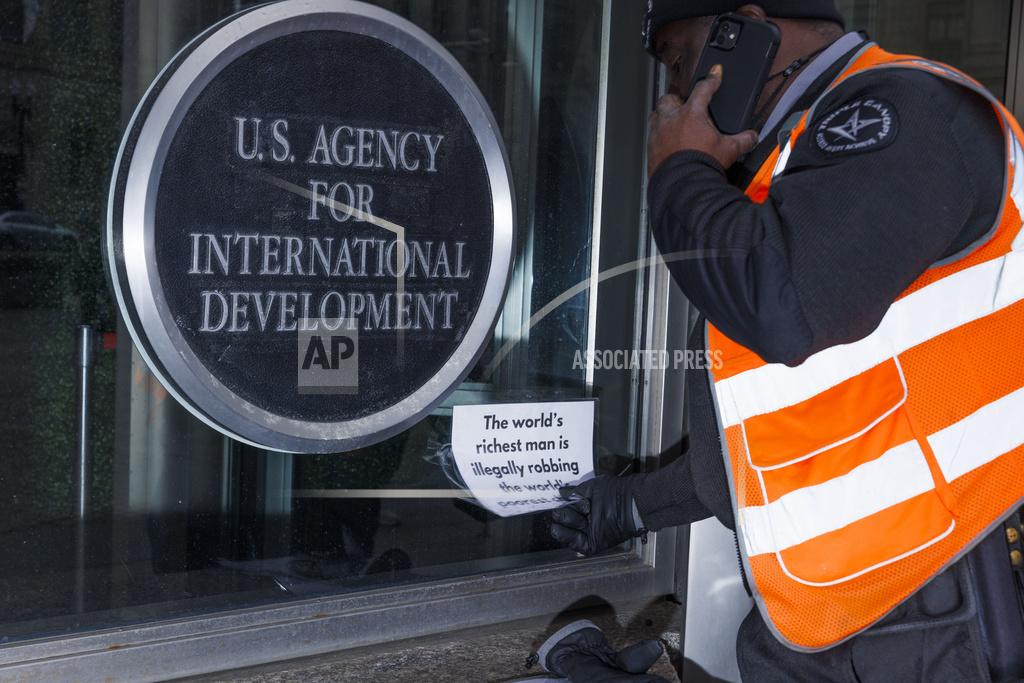
Two weeks ago, the Trump administration revealed plans to place all directly hired United States Agency for International Development employees on leave worldwide and bring back thousands of staff stationed abroad. This move to dismantle USAID, whose website has been taken down, comes amid accusations of “unexplainable” spending, according to President Trump’s statement on Truth Social.
Yet, in the 2023 fiscal year, the U.S. allocated $71.9 billion to foreign aid, making up just 1.2 percent of the federal budget. USAID managed $43.8 billion of that — around 60 percent of all U.S. foreign assistance — amounting to only 0.7 percent of total federal spending, a number constant since 2001.
Beyond the modest budget, there is often misunderstanding regarding the appropriation of foreign aid. While foreign aid is often seen as money spent on other countries, a significant portion actually stays within our borders. Like other forms of distributive politics, it serves as a crucial resource for certain domestic actors. In 2019, during Trump’s first term, his administration attempted to slash USAID’s budget by 24 percent, but the proposal was shut down by both Democrats and Republicans due to its economic impact at home. It’s time to stop framing USAID as a foreign aid agency, but rather a major economic engine at home.
A large share of USAID’s funding flows into American firms, contractors, and NGOs, who carry out its development work. Between 2000 and 2020, USAID’s spending on contracts skyrocketed by 940 percent, with most of these contracts awarded to U.S.-based firms. Companies like Chemonics, which started as a small USAID contractor, grew into a global giant and received more USAID funding in 2011 than any country except Afghanistan and Haiti.
USAID’s model has created an entire industry of firms and NGOs that depend on its funding, supporting thousands of American jobs in sectors like agriculture, health, education, and infrastructure. Freezing USAID’s budget isn’t just a hit to international aid, it’s a blow to American businesses, workers, and global economic influence. It disrupts markets, weakens U.S. economic interests, and hands opportunities to global competitors.
Senator Chris Van Hollen of Maryland warns that a diminished U.S. presence on the global stage could strengthen adversaries like China and Russia. “This isn’t just a handout to our rivals — it’s outright illegal,” he argues.
Since Congress established USAID as an independent entity within the executive branch (as defined in 5 U.S.C. 104), the president cannot unilaterally dismantle or relocate it. Any attempt to abolish, merge, or restructure the agency would require congressional approval. The aggressive removal of or pressure on USAID federal employees, including inspector generals, were unlawful measures.
Last Thursday, a federal judge intervened, extending a temporary restraining order to block this sweeping attempt to gut USAID. Judge Carl Nichols has stated that he will rule by the end of next week on whether to grant a preliminary injunction, which could indefinitely prevent the administration from moving forward with these measures.
While the unions representing USAID employees pursued legal action, President Trump retaliated by firing the chairwoman of the Merit Systems Protection Board, the agency responsible for handling appeals on firings and disciplinary actions, effectively eliminating a critical avenue for federal employees to contest unfair treatment.
It is clear that the administration’s efforts to dismantle USAID are not just unconstitutional, but a direct attack on America’s strategic, economic, and humanitarian interests.
We are watching humanitarian programs — from polio vaccinations to hypertensive disorders of pregnancy — shut down overnight. Just last June, the agency launched an $8 million flagship project to combat tuberculosis and drug-resistant TB in Ethiopia’s urban regions, aligning with its goal to end TB by 2030. With USAID shutting down, these critical programs are grinding to an abrupt halt.
As the fight to preserve USAID continues, one can only hope that reason prevails and these vital programs are protected before the consequences become irreversible.
The Zeitgeist aims to publish ideas worth discussing. The views presented are solely those of the writer and do not necessarily reflect the views of the editorial board.



